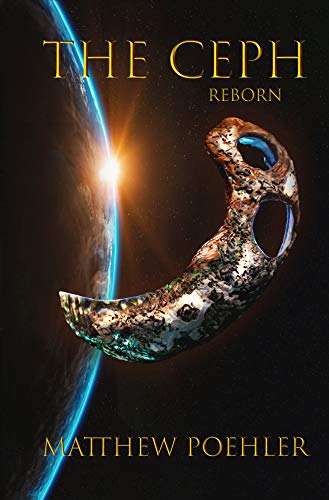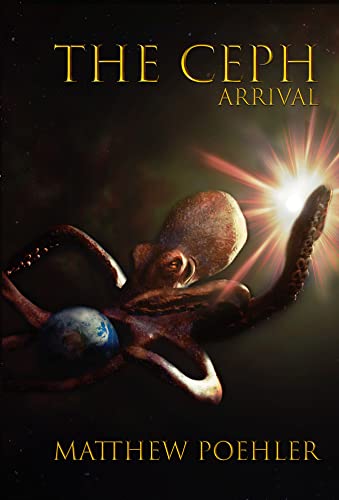10 Questions with Matthew Poehler
- Nikky Lee

- Jul 13, 2022
- 5 min read

Matthew lives in the beautiful country of New Zealand in the best of provinces, Taranaki. He is happily married for coming up on three decades and his two children are grown and gone now, successful in their own right.
Matthew is a person that goes through life with a Plan A, Plan B, and a Plan C at all times. It has saved him from any number of disasters! Amongst his careers he has been an American Paratrooper, an IT Technician, a Business owner (three times), a New Zealand trained Primary School Teacher and now works as a Process Engineer for Tegel Foods. Being an Author is "Plan D" for Retirement.
He is a Medieval Re-enactor and a Western Martial Arts teacher with some forty years experience in various martial arts. As for wisdom, consult the Notebooks of Lazarus Long.
A fervent love for Science Fiction has been life-long, and it is this that led him to writing books for other people to enjoy.
1. Tell us a bit about yourself! Where do you call home and what do you write?
I’m a person that has done a lot of different things with my life. I grew up an Army Brat, and then Dad went into the oil business, so I spent my childhood moving around. I’ve been to twenty-six different schools, not including universities.
That’s not to sound tragic, I had a magical childhood, and we lived in and visited many places in the world. I’ve been from castles on the Rhine, to the Acropolis in Greece, and up inside the pyramids in Giza. So, would I trade for a “normal” childhood? No way!
I have a lovely wife of twenty-nine years now, a daughter of twenty-seven years, and a son who’s twenty-two. I’ve been an American paratrooper with two combat deployments, a business owner three times counting being an author, a primary school teacher, and have two degrees, one in business and the other in education.
Home for me is New Zealand even though I was born in America. I’ve lived more than twenty-five years in New Zealand over three visits.
What do I write? What I love! Science fiction. I once read that the only original stories happen in a sci-fi world because you can invent situations that cannot possibly have happened yet. My writing often covers themes that are important to me, such as:
What is your mind? And what relationship does that bear to the physical universe?
If organisation leads to power, and power corrupts, who do you give power to?
Power must be balanced with responsibility, so who holds the powerful to account?
What does a person look and act like?
Is love a constant? And what does love look like among truly diverse people? Could it include AI?
What does a person that lives a truly long life value? If you live a hundred thousand years what do you still think is important after all that time? Another step up in scale: what does a civilization that lasts a billion years value? And is it equitable or even comprehensible to us?
2. What drew you to that particular genre and/or age group?
I’m drawn to sci-fi as it is what I enjoy reading for myself. Some of my longest term friends are also the authors that brought me up. I aim for an adult audience, but I write sometimes from the perspective of children within the context of a larger story because of the perspective of wonder and clear motivations. Adults are complicated and that’s wonderful, but children have a grasp of the immediate that adults can lack.
3. What are you currently working on?
I have just finished the first story arc of the Ceph universe. There are more books planned but this is the centrepiece. I have at least four more full novels to write, and two short series that parallel the first trilogy.
4. What inspired you to write it?
I have been playing with the story of the Ceph since I was a young teenager at New Plymouth Boy’s High School. I wrote the first true story as a writing challenge given to me by my English teacher. It was a piece that explored who the protagonist was and how he was different from a home invader, set to a background of civilisation replacing wilderness. Mr. Kibby was impressed enough that he read it to the class, and instead of laughing, the other boys were into it. Seeing other people enjoy my writing was wonderful!
5. Tell us about your writing process. Are you a plotter, pantser or somewhere in between?
I have a main idea, a beginning, and where I want to end up for each book, and for each story arc. I set those in place against a timeline. Then I start in with things that inspire me, flashes of insight and put those against the timeline. As the timeline gets filled in, I place notes as comments applied to it. The backbone document of the book looks like a backbone, with myriads of comments and ideas hanging off of it. Then as I incorporate, elaborate or set aside ideas I hide the comments. As I get closer to finishing, the backbone is filled in with names, places, significant events, research links and pictures.
So I don’t write sequentially, I write in episodes I guess. It also means that I don’t get stuck. If I’m not inspired by one piece, I flip to another, or even set out notes and ideas for another book. I knit the sequence pieces together with the plot, and use the backbone document for continuity.
Then I apply chapter structure and work out flow and drama.
Each finished chapter gets loaded into ProWritingAid for structure and mechanics, and I finish each chapter by getting MS365 to read it back to me for language flow.
6. What’s the strangest or most interesting thing you’ve researched for your writing?
Cephalopods are both interesting and strange, and there’s never a possibility of running out of things to learn about them. I know far too many inappropriate things about the rest of life already.
7. What’s the most personal story/scene you’ve written and why?
I think all three books are more personal than I had set out to write in the beginning. I take an idea and run it back and forth in my head until I experience a true emotional reaction myself, then open a vein and bleed on the page. I make myself cry on a regular basis. There was a death in my first book that wrecked me for days.
I also write the way I do out of frustration. I get so bored with “Plucky Earthling Conquers Galactic Race with Duct Tape” that I set out to write a story where humanity is required to knuckle under and go along to get along. That’s got me criticised more than once. “Why do you hate humanity?!” I don’t, I just realise where we stand on such a scale. If we ever meet anyone coming to call, we are going to be a long way behind.
8. Who are your literary influences? In what way?
David Brin, Anne McCaffrey, Robert Heinlein, Arthur Clarke, Greg Bear, Larry Niven, Adrian Tchaikovsky, William Gibson.
9. What books are on your bedside table right now?
This is embarrassing. Asterix books! Books on my Kindle are Adrian Tchaikovsy's Shards of Earth, Peter Cawdron's Clowns, Joe Haldeman's The Forever War, Martha Wells' Murderbot, James S. A. Corey's Leviathan Falls.
10. Last and most important, where can we find your books/stories?
You can find them on Amazon here: https://www.amazon.com/dp/B09LD9YCNS
Follow Matthew on these platforms!
Liked this interview? Sign up to Nikky's mailing list to get a free story along with monthly updates, articles and interviews delivered straight to your inbox!









Comments